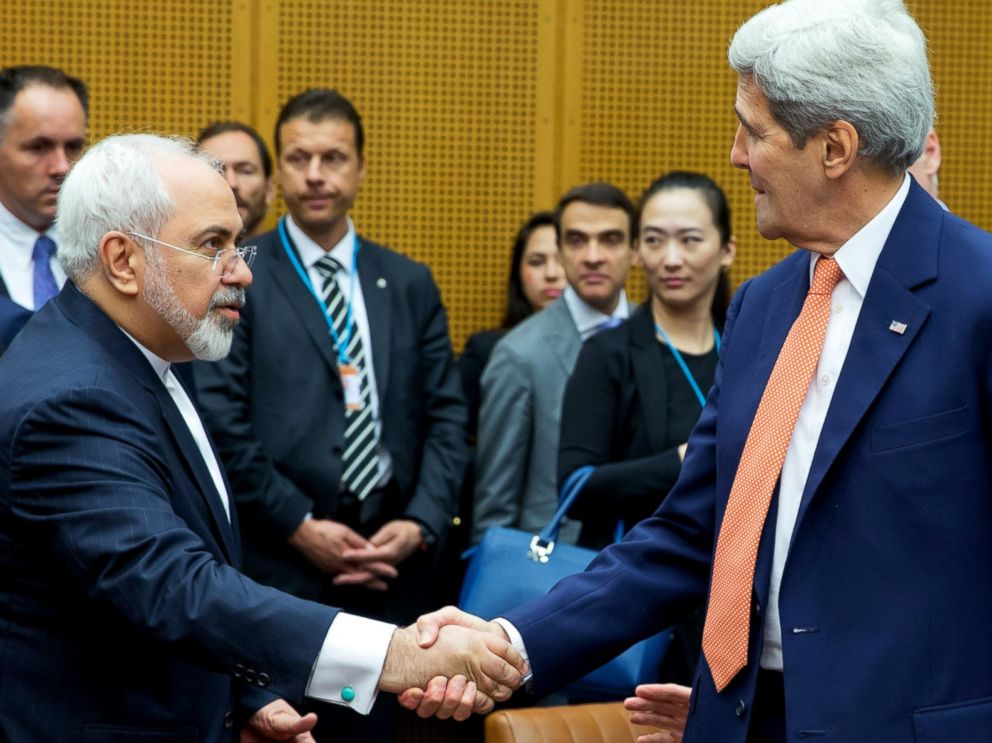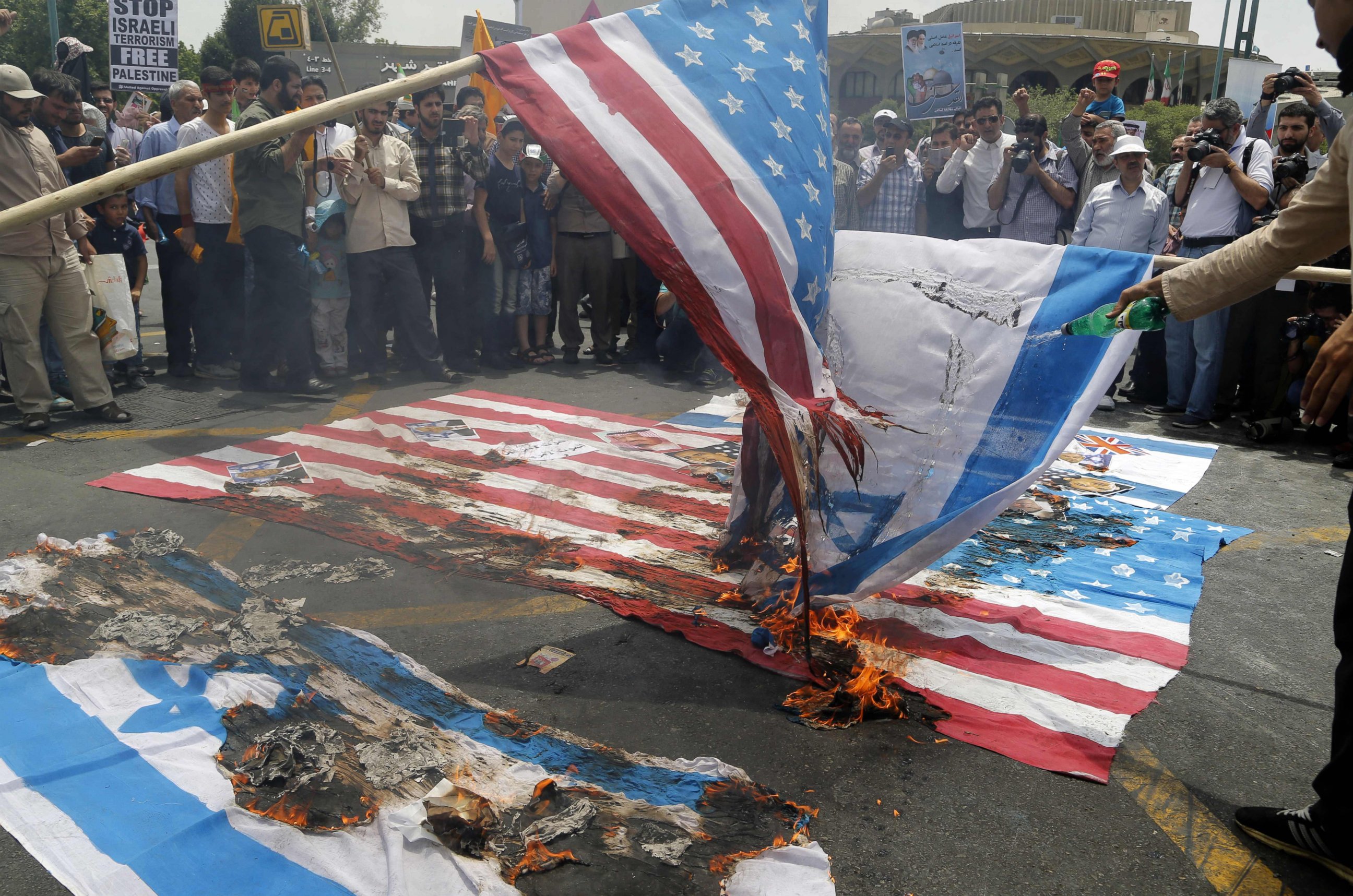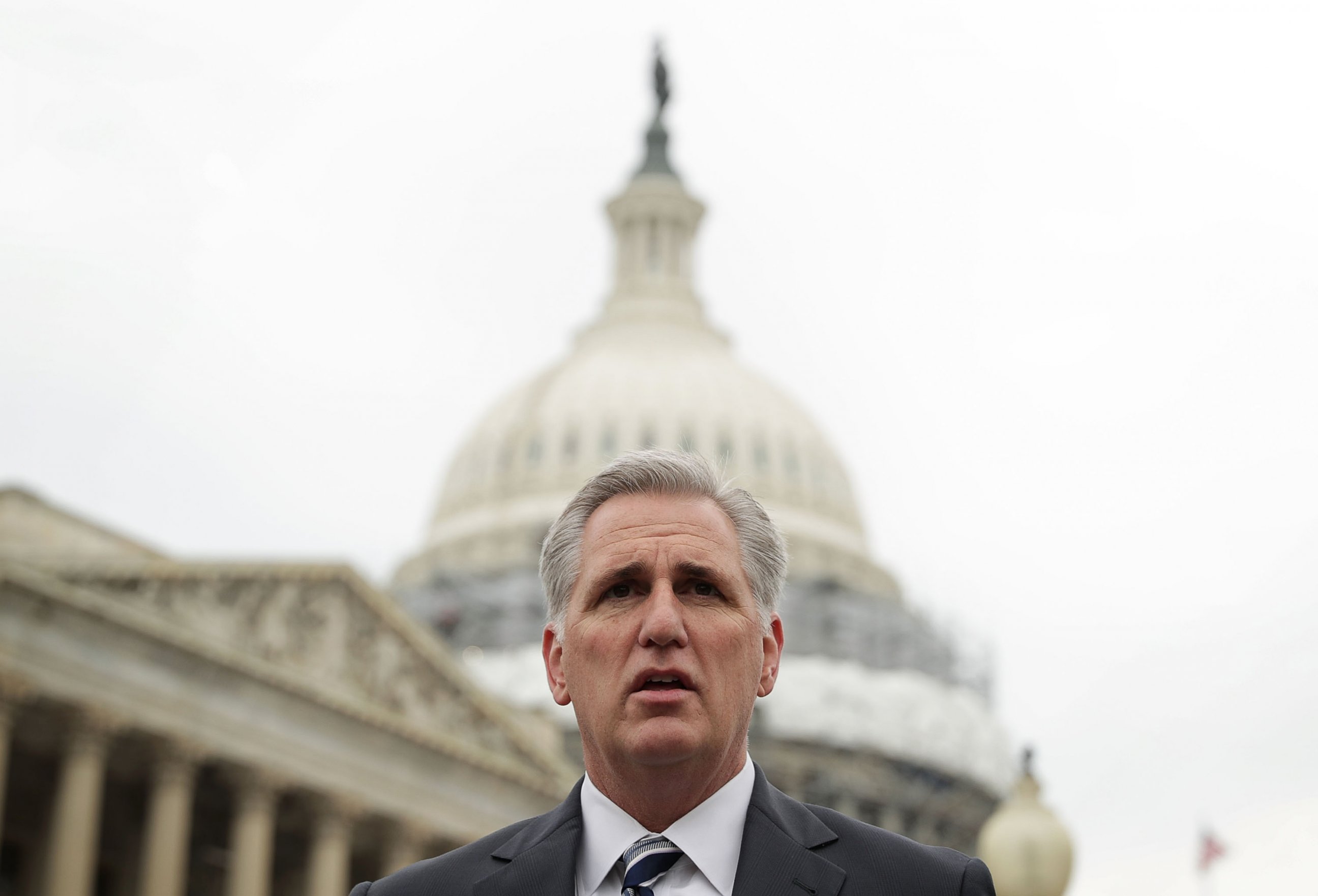Iran Nuclear Deal Fragile but Working, State Department Says
It's been one year since a nuclear agreement with Iran was reached.
— -- It has been one year since the world's major powers announced a historic deal brokered with Iran in the hopes of temporarily nixing the country's pathway to making a nuclear bomb, while also relieving some of the tough economic sanctions levied by the United States and United Nations after an Islamic revolution in 1979.
"A program that so many people said will not work, a program that people said is absolutely doomed to see cheating and be broken and will make the world more dangerous, has, in fact, made the world safer, lived up to its expectations, and thus far produced an ability to be able to create a peaceful nuclear program with Iran living up to its part of this bargain and obligation," U.S. Secretary of State John Kerry said this morning in Paris.
Iran, a country with an embittered history involving a hostage crisis, religious and cultural conflict, and a distrust by its regional neighbors, has -- by the State Department's account -- kept up its side of the deal.
It all began with a giant leap of faith by President Obama, who six years ago first signaled a willingness to speak directly with Iran about its nuclear program and future involvement in the world's economy.
It took a two-year-long high-stakes campaign of diplomacy led by Kerry and six world powers to finally seal the deal, despite many obstacles and critics who vowed to block a potential agreement.
What Is the Iran Deal?
The Iran nuclear deal, or the Joint Comprehensive Plan of Action, is an agreement between the so-called P5+1 (the U.S., the U.K., France, Germany, China and Russia) and Iran, that prevents Iran from obtaining a nuclear weapon.
It was a deal fostered under a negotiation of epic proportions that kept world leaders like Kerry holed up in Vienna, Austria, for 18 days last summer, as they hammered out a geopolitical compromise affecting global and regional security that many thought was impossible to achieve.

Brokers of the deal said it effectively extends the time it would take Iran to build a bomb from a few months to one year, for the next 10 years.
Under the deal, Iran promised it would cut back its nuclear program, including dismantling two-thirds of its key nuclear machinery for the next 10 years, reducing its uranium stockpile by 98 percent for the next 15 years, and submitting to international monitoring and inspections.
In January, the International Atomic Energy Agency declared Iran had fulfilled these requirements. In return, the United Nations Security Council lifted its crippling economic sanctions on Iran, allowing Iran to sell oil and gain control of billions in impounded money.
State Dept. OKs Iran's Progress
"What is most striking to me today is that Iran has in fact taken the necessary steps to dramatically constrain its nuclear program, the nuclear deal has been implemented, and the dire predictions that opponents of the deal made have simply been proved wrong," Ambassador Stephen Mull, the State Department’s lead coordinator for Iran nuclear implementation, said Tuesday during panel discussion.
Mull said Iran has shipped off 98 percent -- or 25,000 pounds -- of its enriched uranium, and it has filled the core of its heavy-water reactor, capable of producing weapons-grade plutonium, with concrete. And, he said that if Iran were to race now toward building an atomic weapon, it would need at least a year to do so. Iran has gained access to about $50 billion of its unfrozen assets, a majority of which remains in overseas accounts, he said.

But critics of the nuclear deal say the agreement has yet to live up to its "highest hopes."
The Bipartisan Policy Center released a report Tuesday stating inspectors were able to identify two "chemically man-modified particles of natural uranium" at Parchin military complex, a secret nuclear facility in Iran. The report suggested the particles confirm Iran's ongoing involvement in building nuclear weapons and that it requires further investigation by the State Department.
Iran Deal Going Forward
There are concerns the upcoming elections in both the U.S. and Iran could derail the deal if certain leaders are elected. Presumptive Democratic nominee Hillary Clinton backs the deal, but her GOP opponent Donald Trump has spoken of “renegotiation.”
Speaking before the American Israel Public Affairs Committee earlier this year in Washington, D.C., Trump claimed his “No. 1” priority is to “dismantle the disastrous deal with Iran.”
Iran’s Fate in the World Economy
As a result of the nuclear deal, many international sanctions against Iran were lifted, though the U.S. is still facing an uphill battle as it dabbles in potential business deals with the beleaguered Iran.
Most recently, Boeing announced a tentative multibillion-dollar plane deal it reached with the Iranian government, the first potential major U.S. deal with Tehran since the nuclear accord eased up sanctions last year.

But the U.S. House of Representatives passed two measures last week that would block the sale. The U.S. Senate hasn’t acted yet. The Obama administration has promised to veto any bill that undermines the nuclear agreement.
The nuclear deal itself continues to face heavy opposition in the U.S. Congress. House Majority Leader Kevin McCarthy, R-California, promised to bring three Iran-related bills to the floor before the House adjourns for summer recess.




